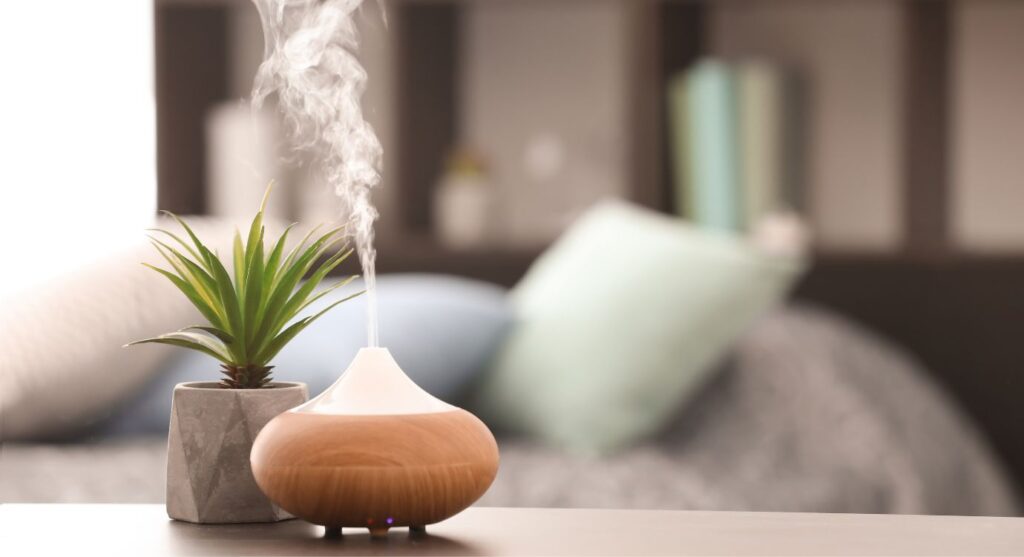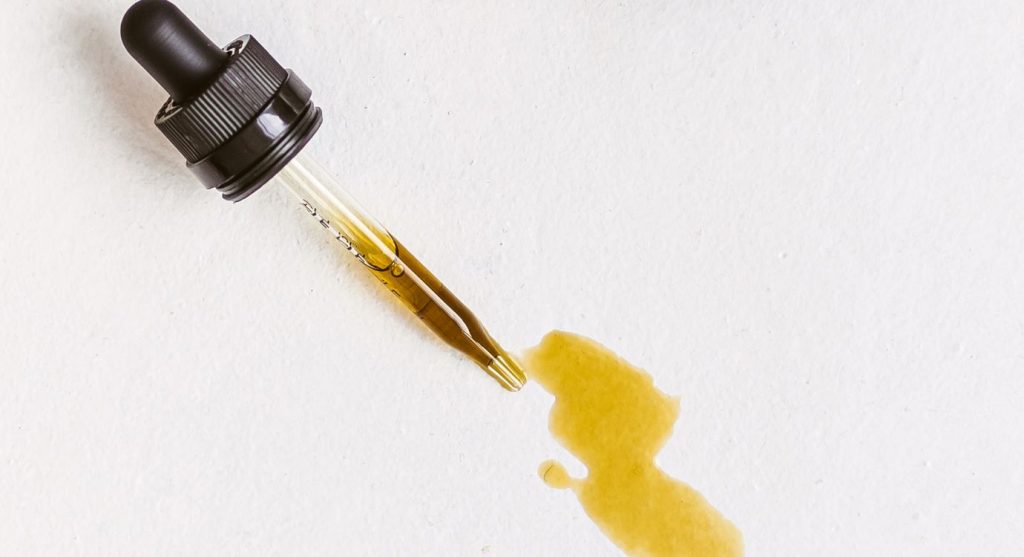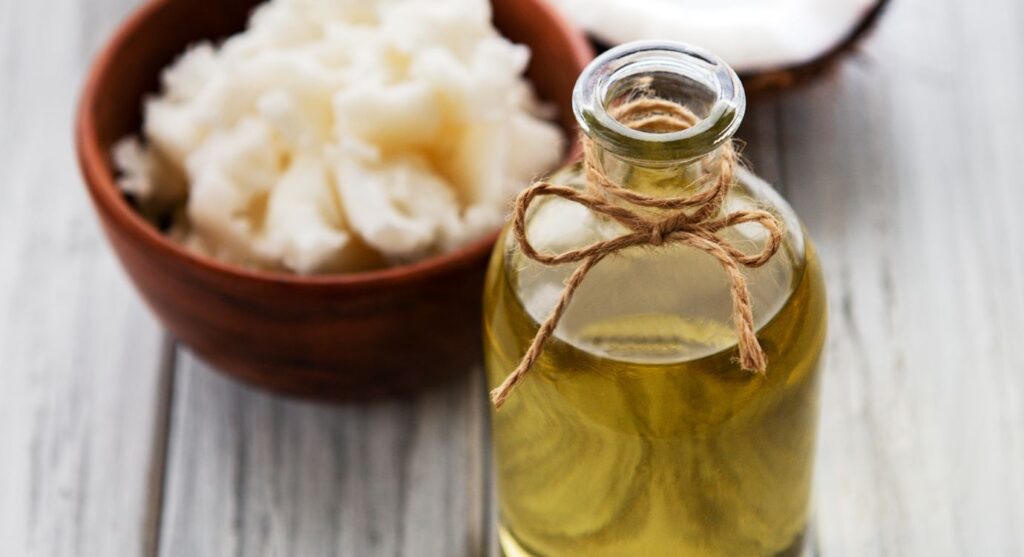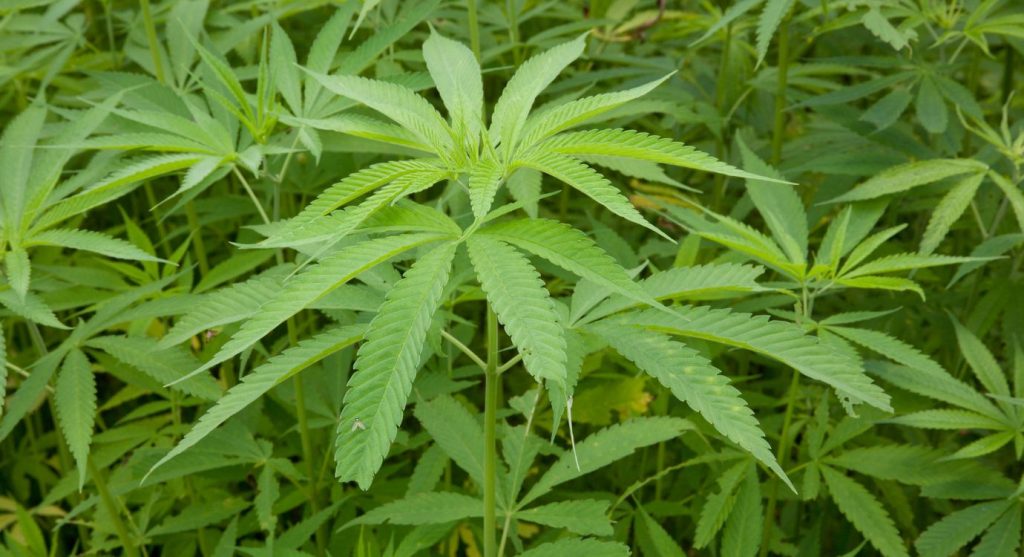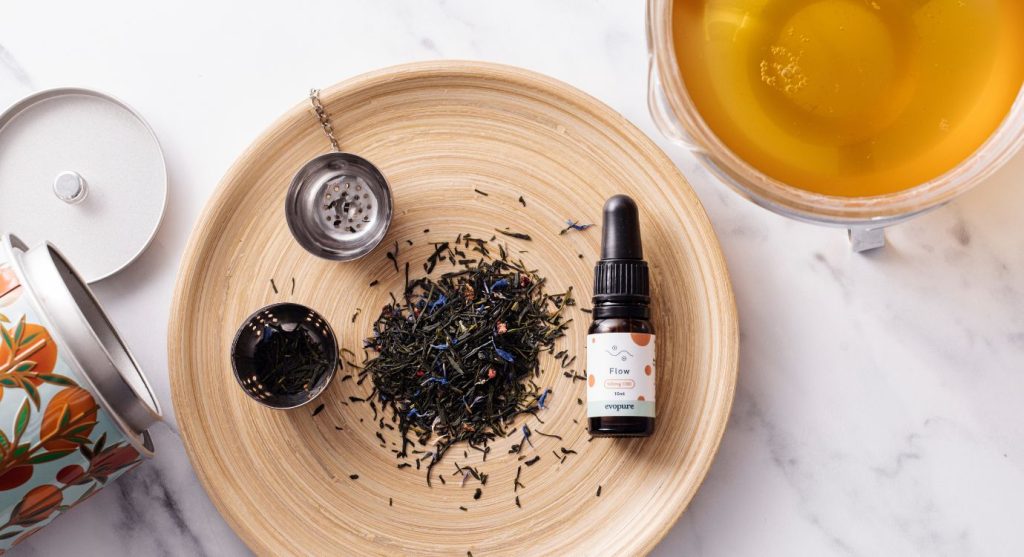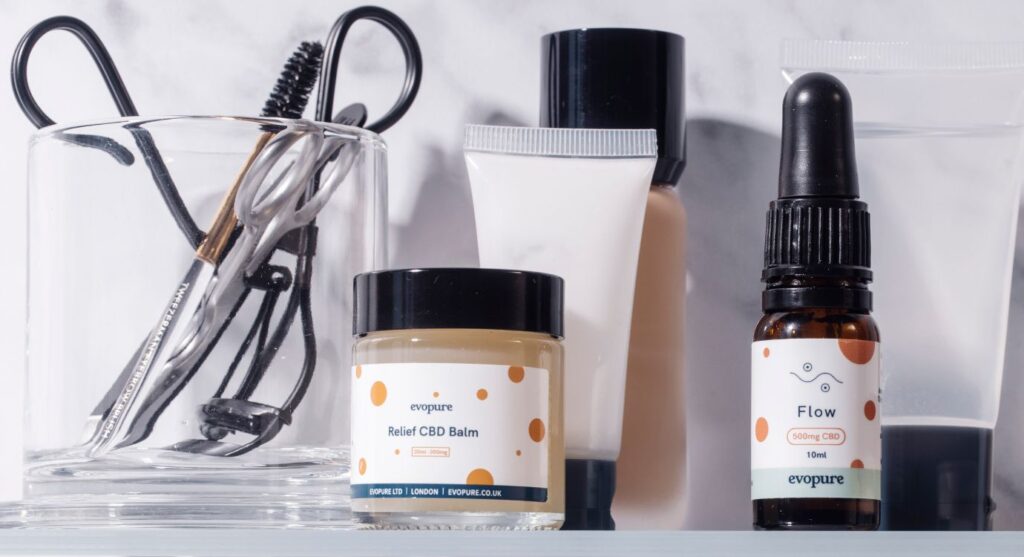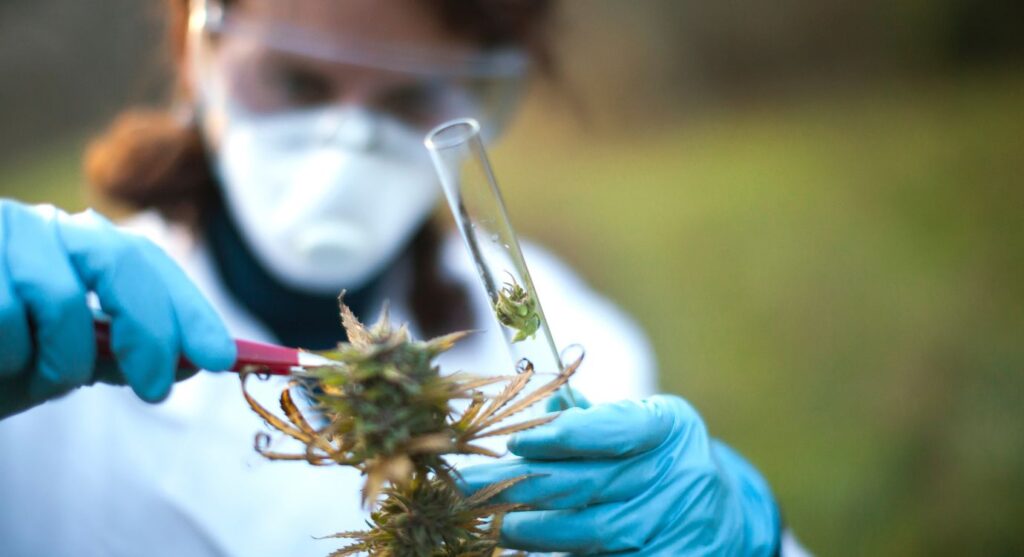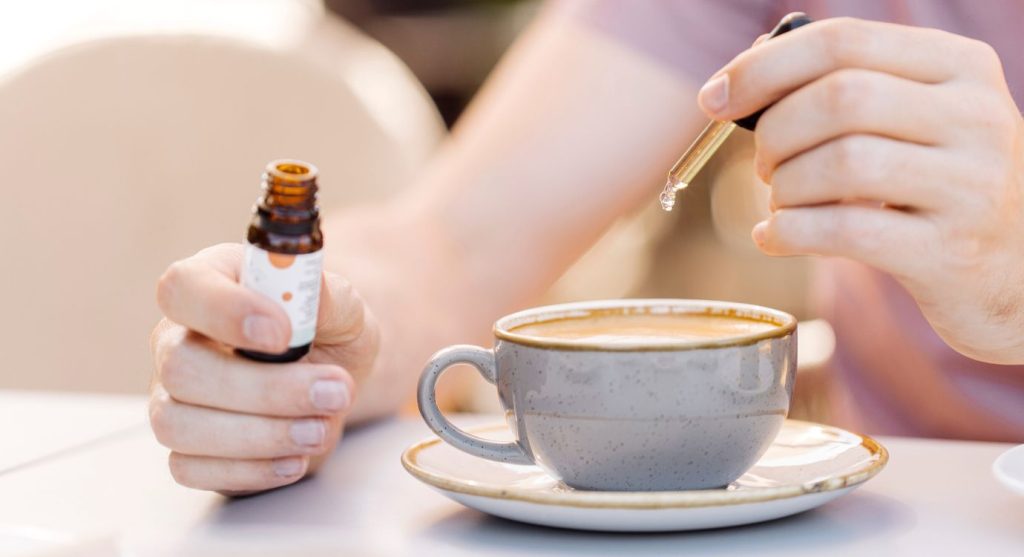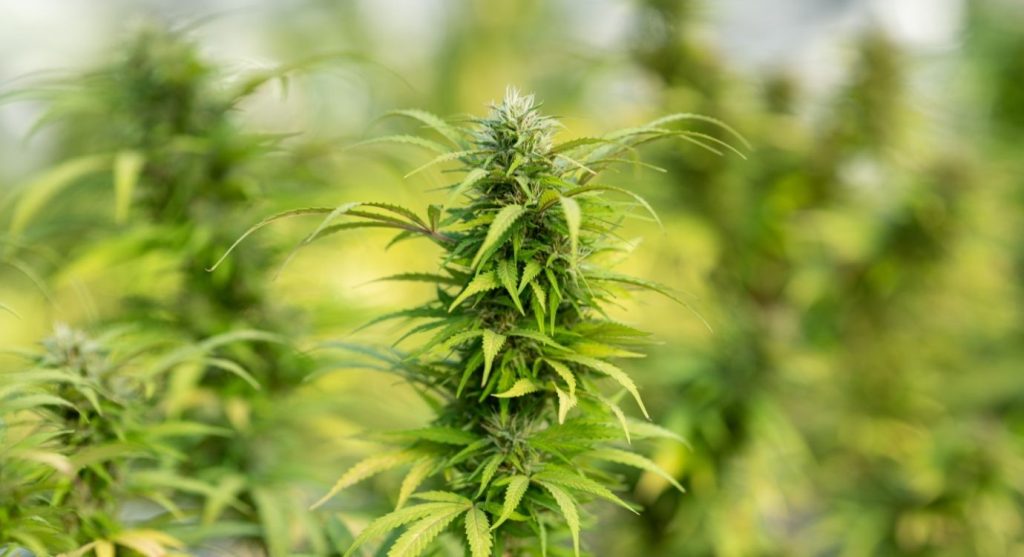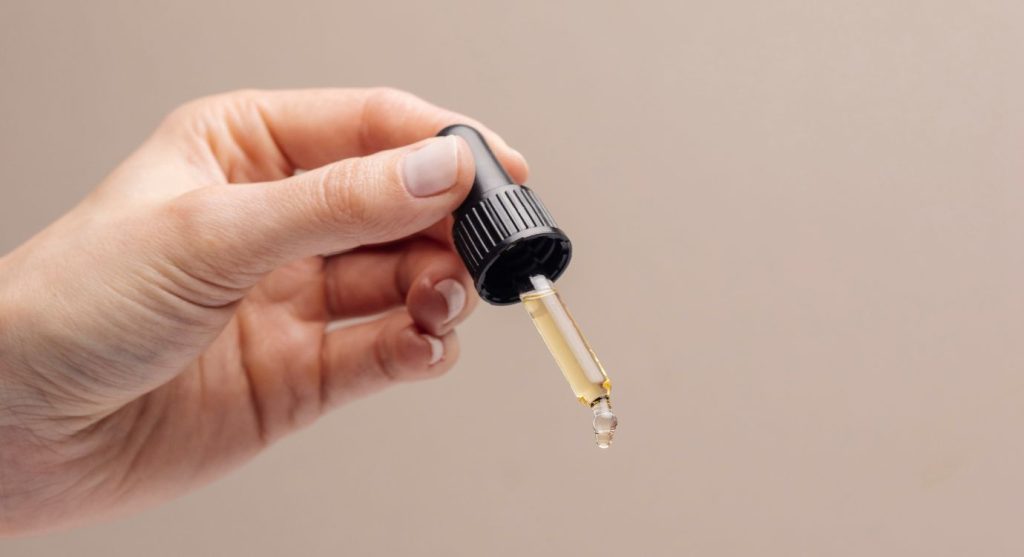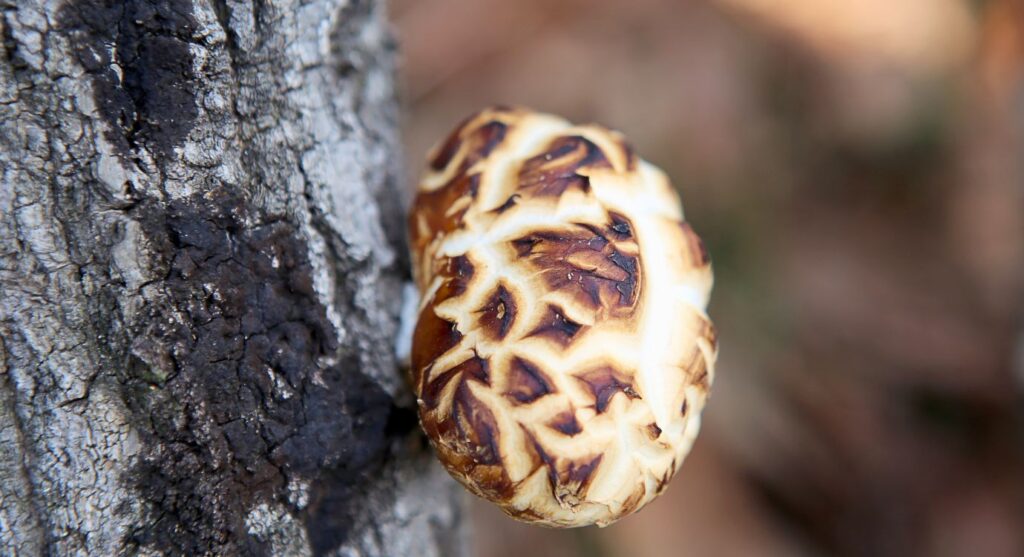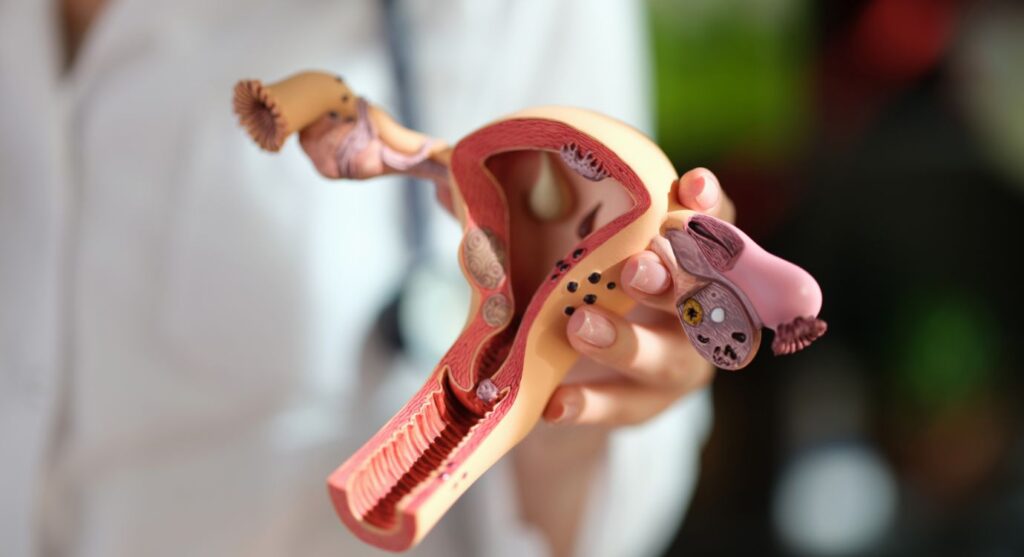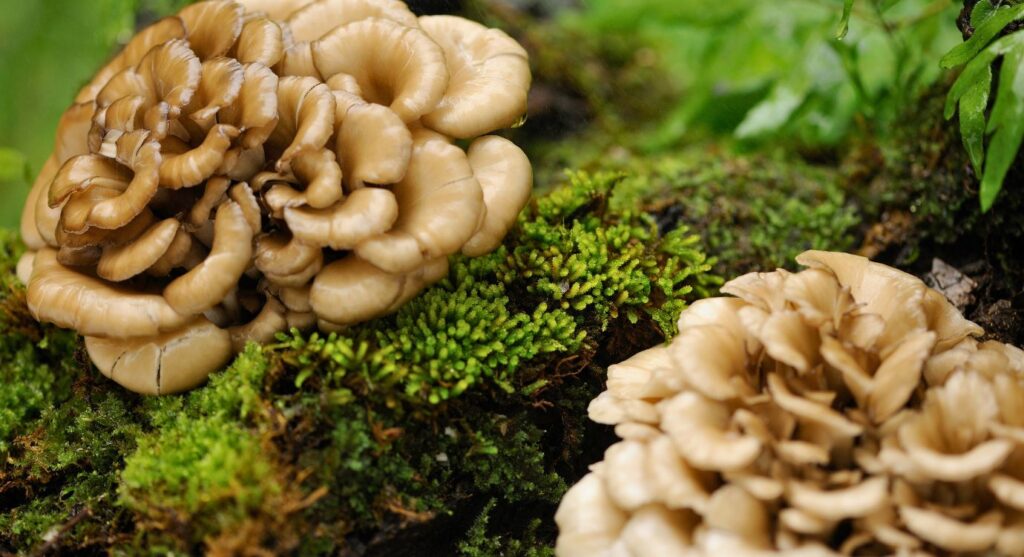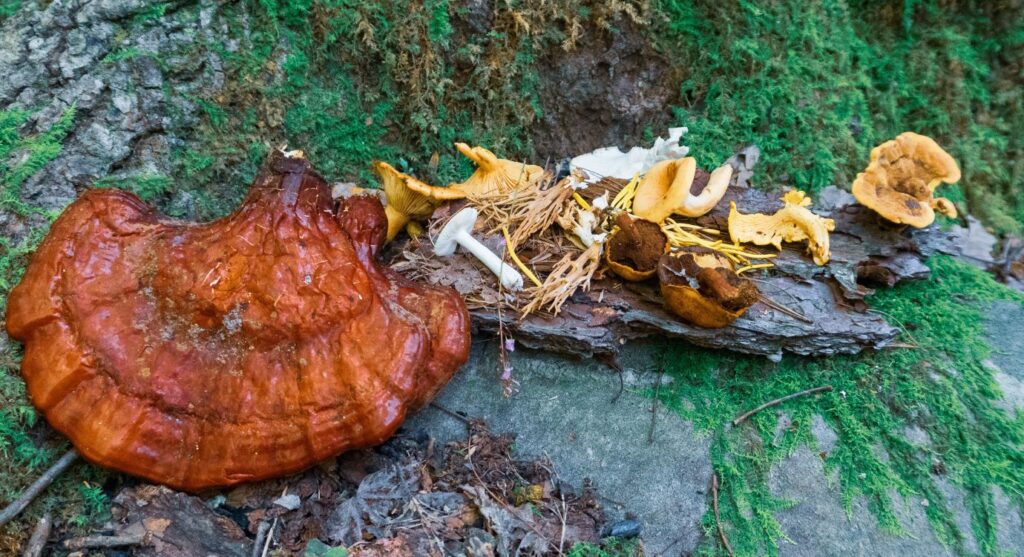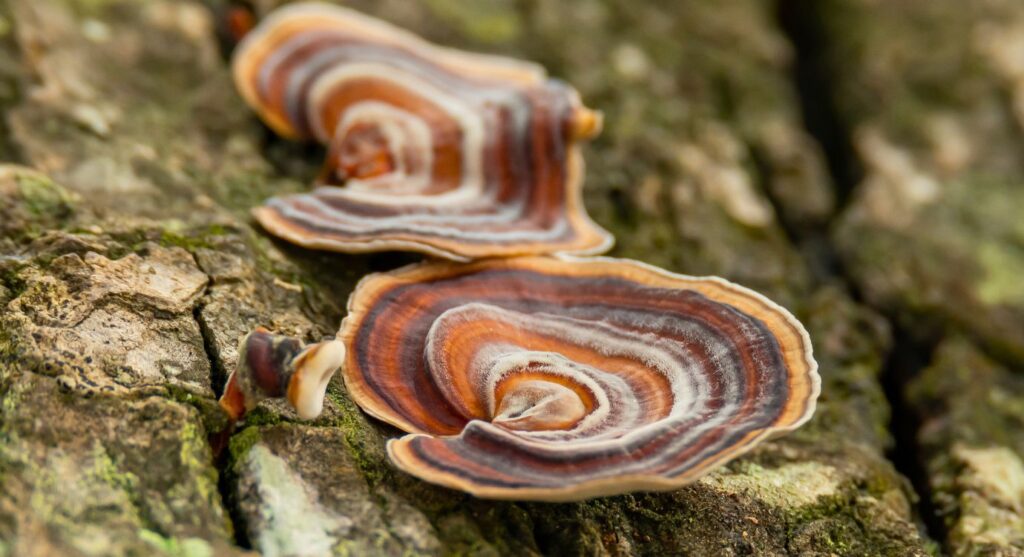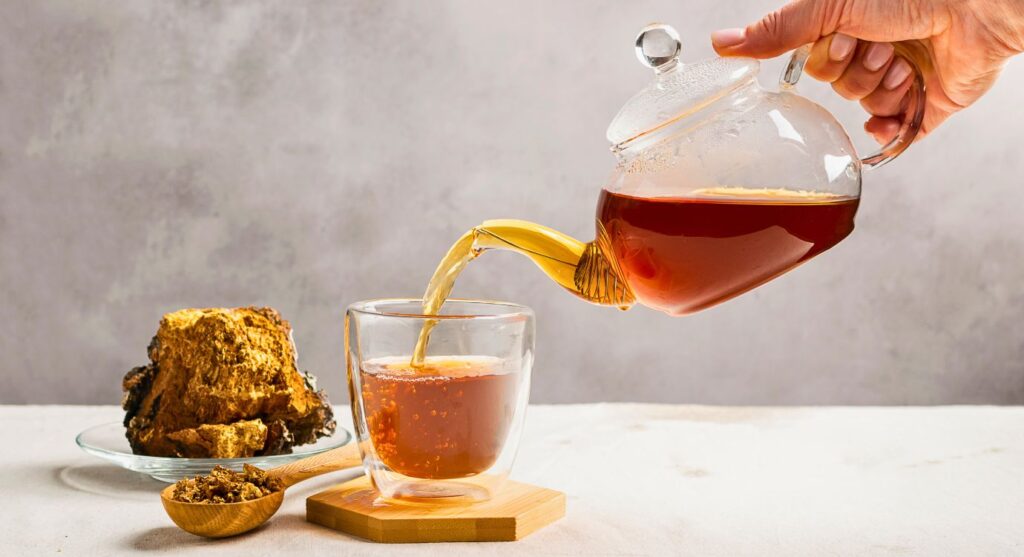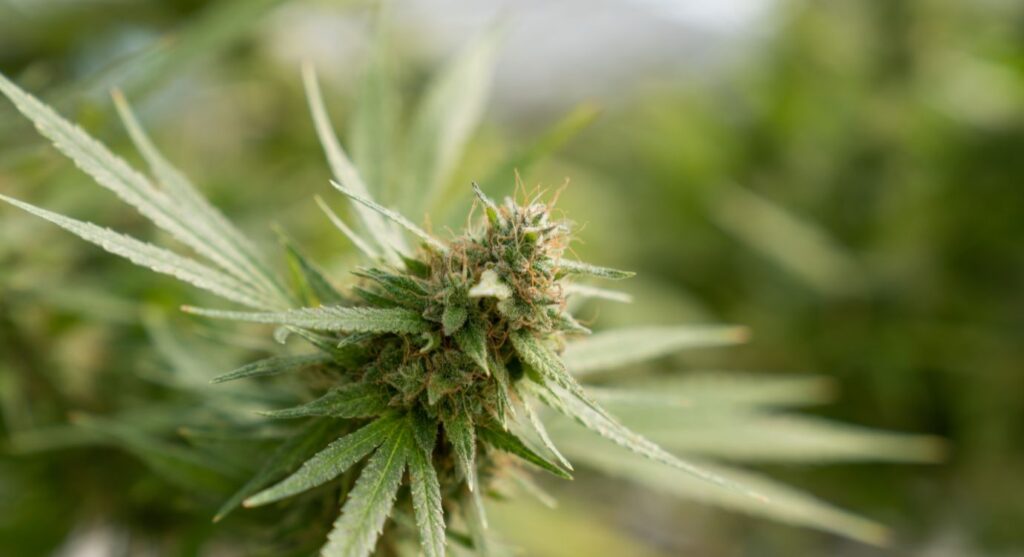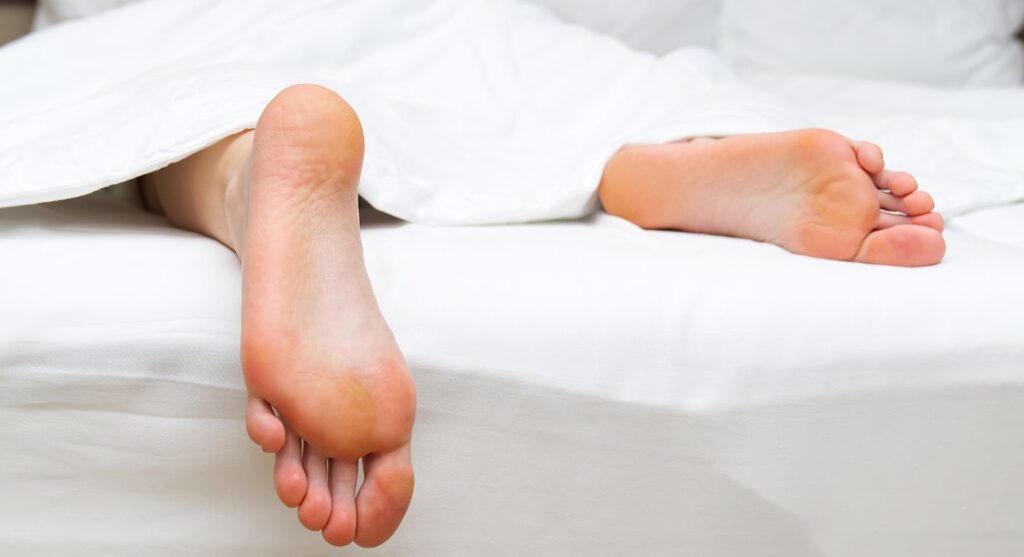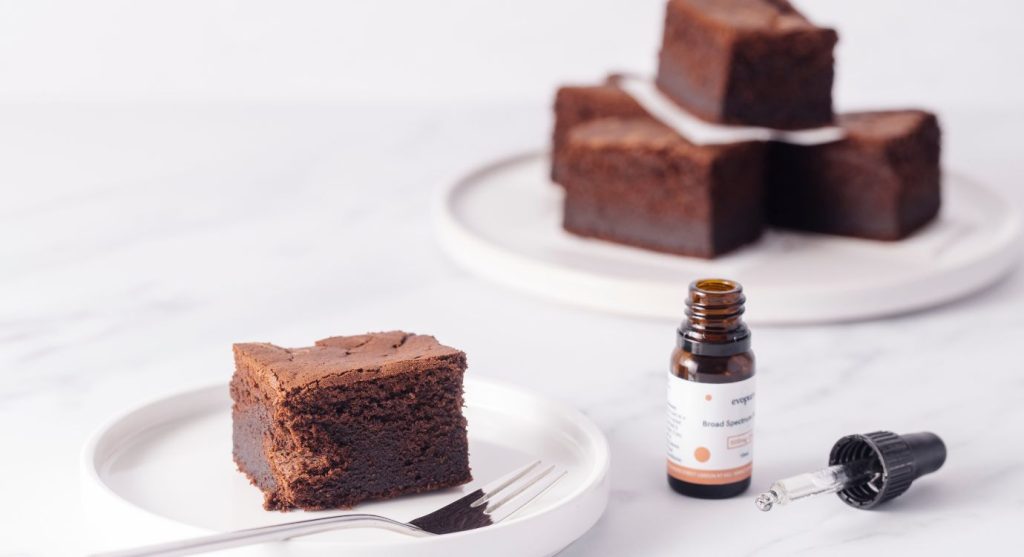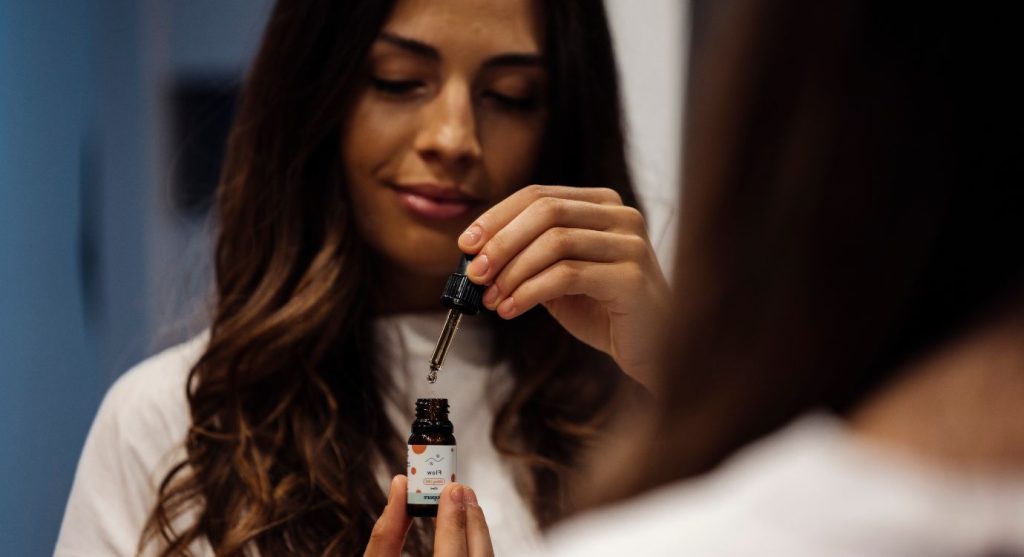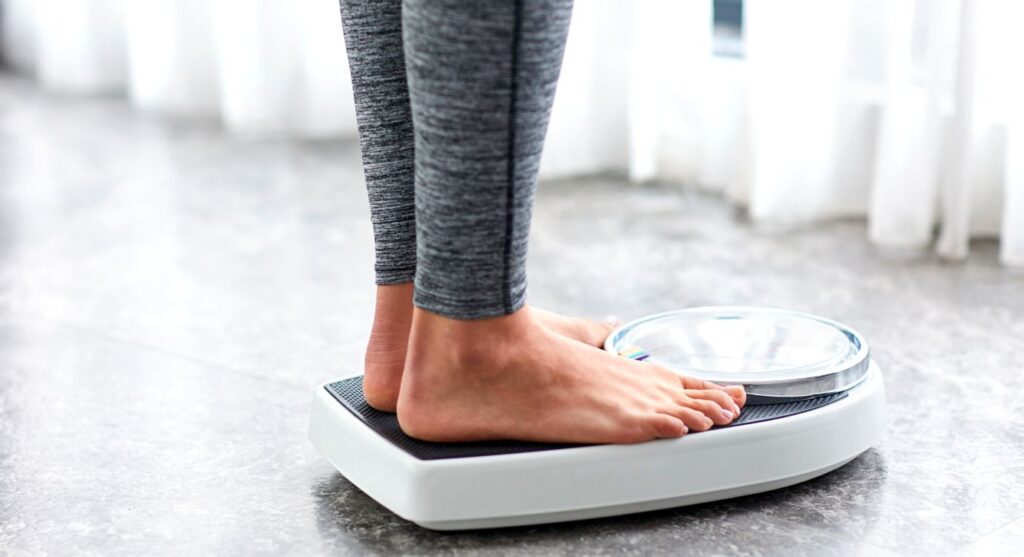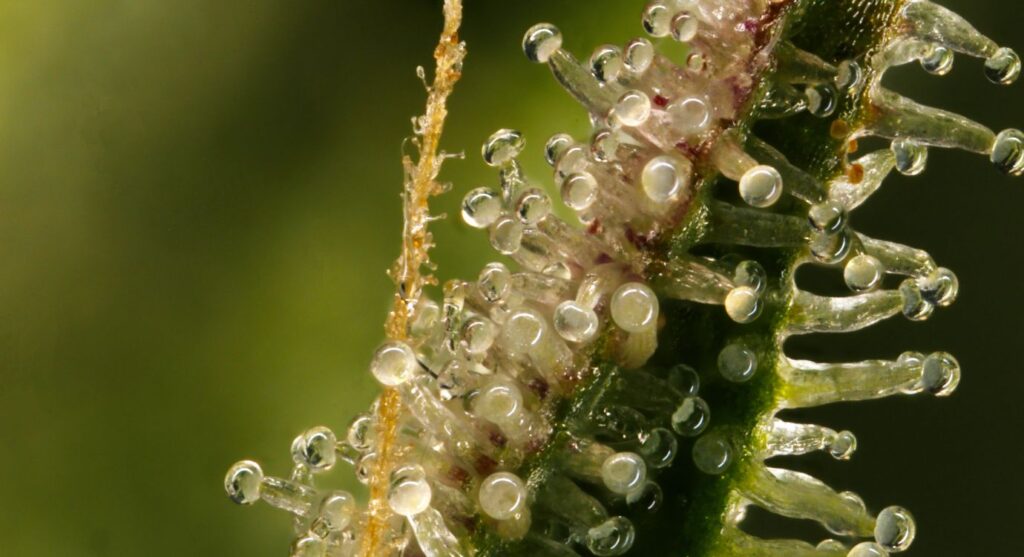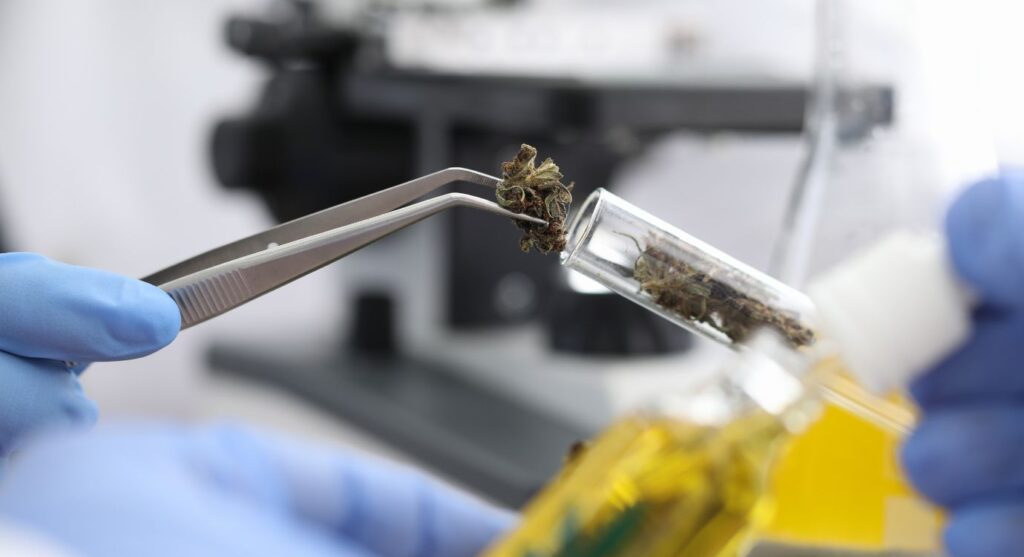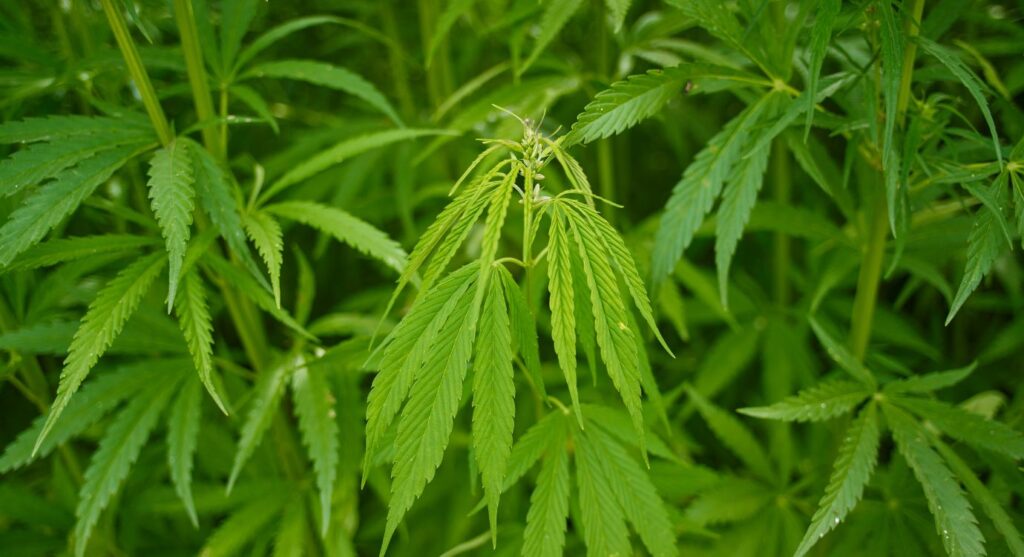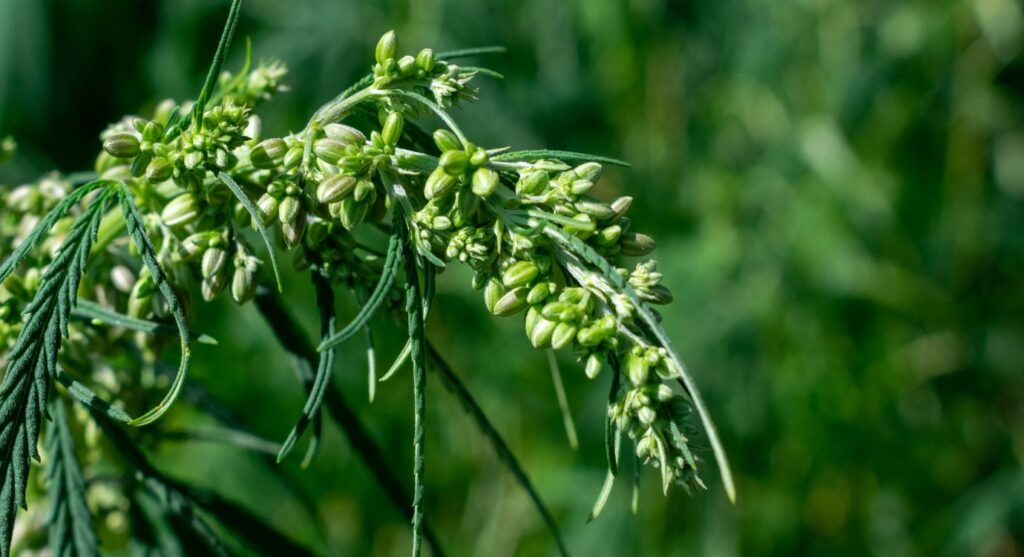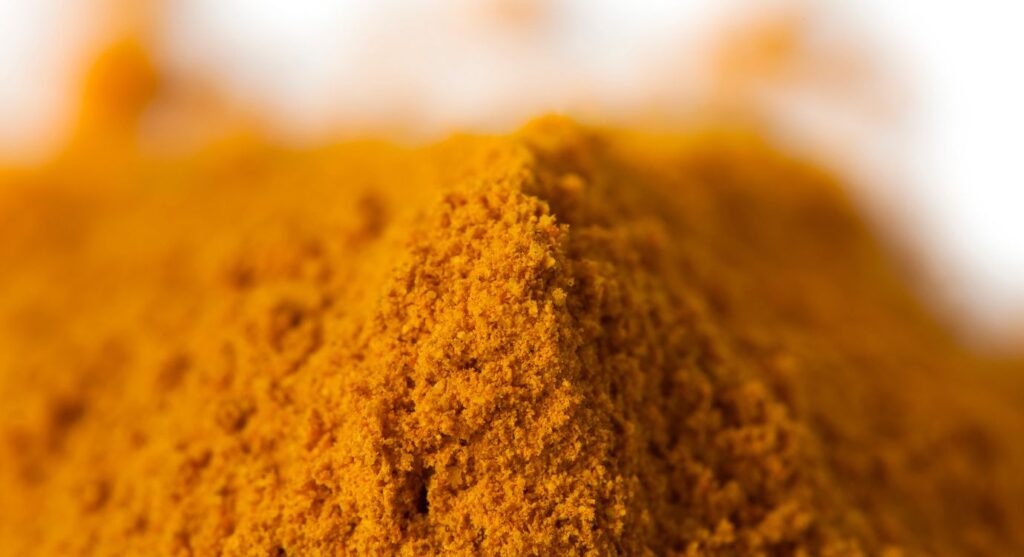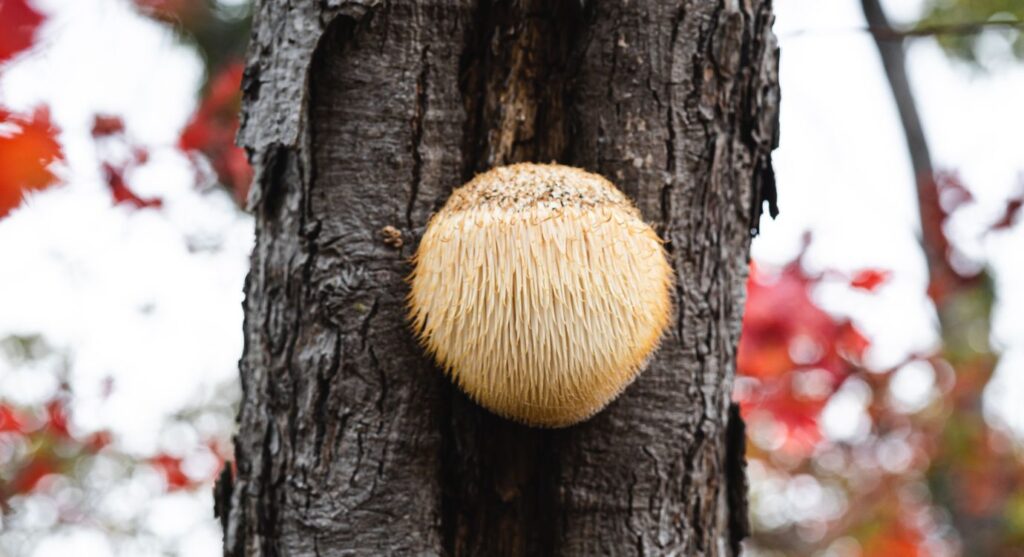Are you feeling anxious? You’re not alone.
According to the World Health Organization, about 264 million people worldwide suffer from anxiety, which is about 3.6%of the world’s population.
What if we told you there’s a natural way to help manage your symptoms?
Lately, many people have been turning to alternative remedies, such as using mushrooms for anxiety.
However, this isn’t actually a new thing, as certain mushrooms have actually been used for centuries already for their medicinal properties and health support, including anxiety and stress reduction.
This is great news, right? But there’s just one problem.
There are thousands of mushrooms in existence, and knowing which are the best mushrooms for anxiety is challenging without some help. That’s where we come in.
In this article, we’ll be discussing:
- How mushrooms for anxiety work.
- The best mushrooms for anxiety.
- How to use mushrooms for anxiety.
In this guide:
How do mushrooms for anxiety work?
The exact mechanisms by which mushrooms may help with anxiety are not fully understood and likely vary depending on the specific species of mushrooms and compounds involved.
Nonetheless, some researchers believe that certain compounds found in mushrooms may interact with chemicals in the brain, such as serotonin and dopamine.
Both serotonin and dopamine are neurotransmitters, which are chemicals in the brain that transmit signals between nerve cells.
Serotonin is often referred to as the “feel-good” neurotransmitter because of its involvement in regulating our mood, appetite, and sleep. It is also involved in the regulation of anxiety and stress.
In general, higher levels of serotonin are usually associated with lower levels of anxiety, and vice versa.
Dopamine, on the other hand, is most times referred to as the “reward” neurotransmitter because it is involved in the brain’s reward and pleasure pathways. It is also involved in regulating movement, attention, and mood, and low levels of it have been linked to anxiety, depression, and other mood disorders.
So when said mushroom compounds bind with serotonin and dopamine, they can regulate your mood and anxiety.
For example, psilocybin, the psychedelic compound found in some species of mushrooms, has been shown to bind to serotonin receptors in the brain, which may contribute to its anxiolytic (anxiety-relieving) effects.
In addition, mushrooms may have anti-inflammatory and antioxidant properties that could also contribute to their potential benefits for anxiety. As inflammation and oxidative stress have been linked to anxiety and other mood disorders, reducing these factors may help to alleviate symptoms.
10% off on your first order
Complete this one-minute quiz and find the right products for you.
What are the best mushrooms for anxiety?
Not all mushrooms are created equal when it comes to tackling stress and anxiety. So which holds the key to soothing an anxious mind?
When it comes to the best mushrooms for anxiety relief, adaptogenic mushrooms take centre stage.
These mushrooms contain high contents of beta-glucan fibre, polysaccharides, and terpenoid compounds that are believed to not only assist in relieving anxiety but also provide cognitive and other mental health benefits.
So, without further ado, here are our top picks in the battle of mushrooms against anxiety.
Reishi for anxiety
Reishi mushroom (Ganoderma lucidum) has been used for centuries in traditional Chinese medicine for its ability to induce relaxation and promote a sense of calm. These effects make it potentially beneficial in reducing anxiety and depression.
Researchers believe that Reishi achieves these therapeutic effects through several means, including its anti-inflammatory and antioxidant properties. By reducing inflammation and oxidative stress in the brain, both of which are associated with anxiety and depression, Reishi mushrooms may offer a natural remedy for these conditions.
In a study carried out on mice, Reishi extracts were administered, and the results showed promise. The mice given Reishi extracts were able to spend a longer amount of time in an elevated pulse maze (EPM), a common method used to measure anxiety in rodents.
Moreover, a separate study conducted on 132 patients with neurasthenia (a condition characterised by fatigue, headaches, and other symptoms related to stress and anxiety) revealed encouraging findings. Over the course of 8 weeks, patients who were given 1,800 mg of Reishi extract three times a day showed significant reductions in symptoms of anxiety and depression.
These findings make it clear that Reishi has the potential to be a valuable natural remedy in the quest for relief from anxiety and depression.
Read more: Guide to Reishi mushrooms
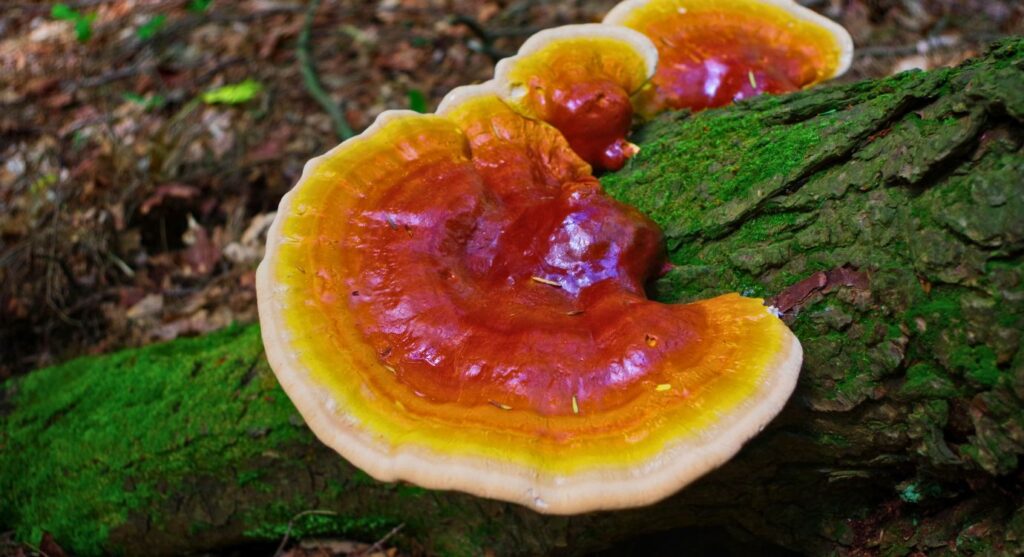

Lion’s Mane for anxiety
Lion’s mane mushroom is popularly known for its ability to improve cognitive function, but this adaptogen has much more to offer.
Lion’s Mane has also shown promise in assisting with anxiety relief and depression control.
One potential way Lion’s Mane mushroom may help reduce anxiety is by supporting the production of nerve growth factor (NGF) in the brain. NGF is a protein that plays a crucial role in the growth and maintenance of nerve cells in the brain, and it has been linked to cognitive function and mood regulation.
Research suggests two compounds found in Lion’s Mane mushroom, hericenones and erinacines, may improve brain function and protect against cognitive decline caused by ageing. This, in turn, may help to reduce anxiety and improve overall cognitive function.
Another way Lion’s Mane mushroom may help to reduce anxiety is through its anti-inflammatory and antioxidant properties, much like the Reishi mushroom.
Chronic inflammation has been linked to anxiety and depression, and research has suggested that Lion’s Mane mushroom may help to reduce inflammation in the brain, which could, in turn, alleviate symptoms of anxiety.
Finally, research suggests that Lion’s Mane mushroom may help to reduce anxiety by increasing levels of neurotransmitters in the brain, including dopamine and serotonin. As discussed above, they play important roles in regulating mood and anxiety and having more of them present may lead to reduced anxiety.
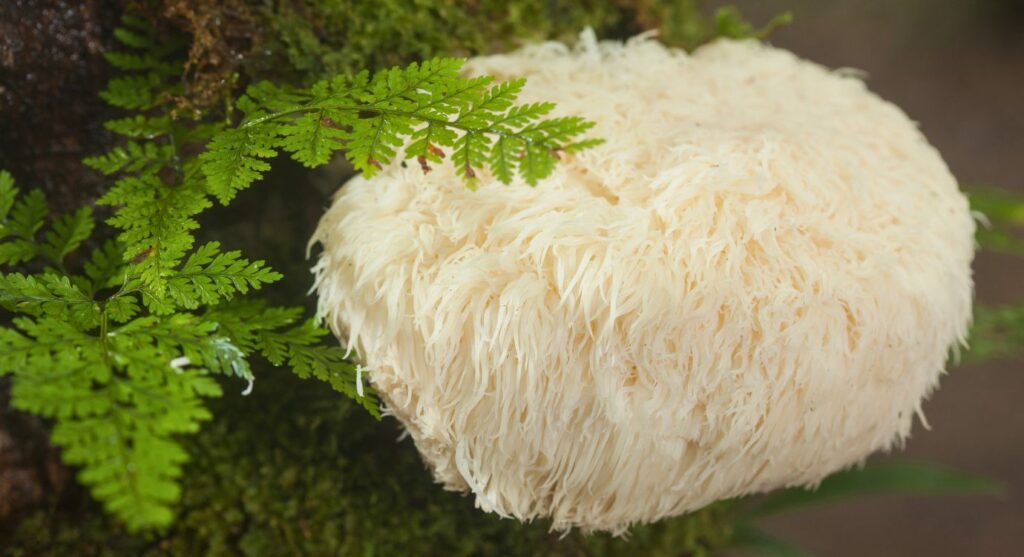

Cordyceps for anxiety
Cordyceps mushrooms have amazing stress-relieving and free-radical neutralising power. While it is commonly used as a healthy tonic, this special fungus is one of the best mushrooms for anxiety and depression.
Cordyceps are believed to enhance physical performance and reduce fatigue. Stress and anxiety can often be exacerbated by physical exhaustion and fatigue, so reducing these symptoms may help to reduce overall levels of anxiety.
But that’s not all.
Cordyceps may help reduce inflammation in the brain, which plays a crucial role in anxiety reduction. Preliminary human and animal studies show that Cordyceps supports a healthy inflammation response, which can alleviate occasional anxiety and stress.
Why does this matter?
Inflammation is linked to the development and progression of anxiety and depression. Research has shown that chronic inflammation in the body and brain can lead to changes in the production and release of certain chemicals, such as cytokines, which are involved in the immune response.
These changes can affect the balance of neurotransmitters in the brain, including serotonin and dopamine, which are important in regulating mood and anxiety.
Additionally, inflammation can increase the production of stress hormones like cortisol, which can contribute to symptoms of anxiety and depression.
Inflammation can also lead to changes in the structure and function of the brain. For example, chronic inflammation has been associated with reduced hippocampal volume, which is a brain region involved in memory and emotion regulation. This reduced volume has been linked to symptoms of depression and anxiety.
Furthermore, there is also evidence that inflammation can disrupt the gut-brain axis, which is the communication network between the gut and the brain. This disruption can lead to changes in the composition of the gut microbiome, which in turn can affect mood and anxiety.
So, with its stress-relieving and inflammation-fighting abilities, Cordyceps can be a formidable ally in the battle against anxiety.
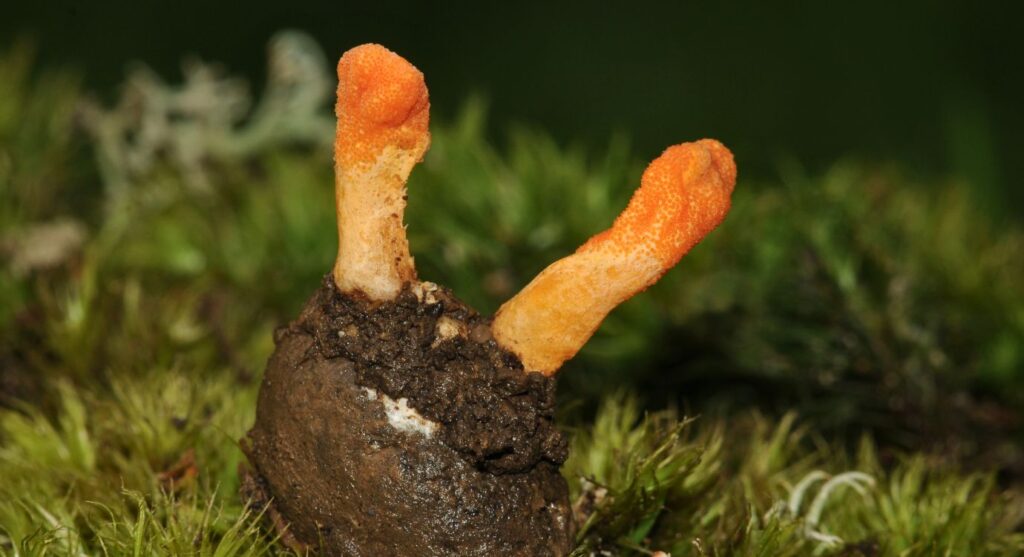

How do I use mushrooms for anxiety?
There are several possible ways for you to take mushrooms for anxiety, they can be taken as a supplement, powder, tincture, or capsule. All of these methods provide the same benefits when it comes to fighting anxiety.
Additionally, you can combine them with other anxiety-reducing strategies, such as mindfulness practices, exercise, and therapy.
Just keep in mind that while mushrooms may have potential benefits for anxiety, more research is needed to confirm their effectiveness and determine safe dosages.
And remember, always consult with a healthcare professional before starting any new treatment.
Final thoughts
In conclusion, mushrooms are a natural way to help reduce anxiety and stress levels.
Research has shown that adaptogenic mushrooms contain compounds such as beta-glucan fibre, polysaccharides, and terpenoid compounds that can regulate mood and anxiety by binding to neurotransmitters in the brain.
Reishi, Lion’s Mane, and Cordyceps mushrooms are considered the best mushrooms for anxiety, and they can be incorporated into your diet in different forms, such as teas, tinctures, and powders.
Nevertheless, it’s important to consult a doctor before using them to avoid possible allergic reactions or interactions with other medications.
Frequently asked questions:
Can mushroom supplements help with anxiety?
There is some evidence to suggest that certain mushroom supplements, such as Reishi and Lion’s Mane, may have anti-anxiety effects.
What mushrooms help with stress?
Several types of mushrooms have been studied for their potential stress-reducing effects, including Reishi, Cordyceps and Lion’s Mane. However, more research is needed to confirm their effectiveness for stress.




